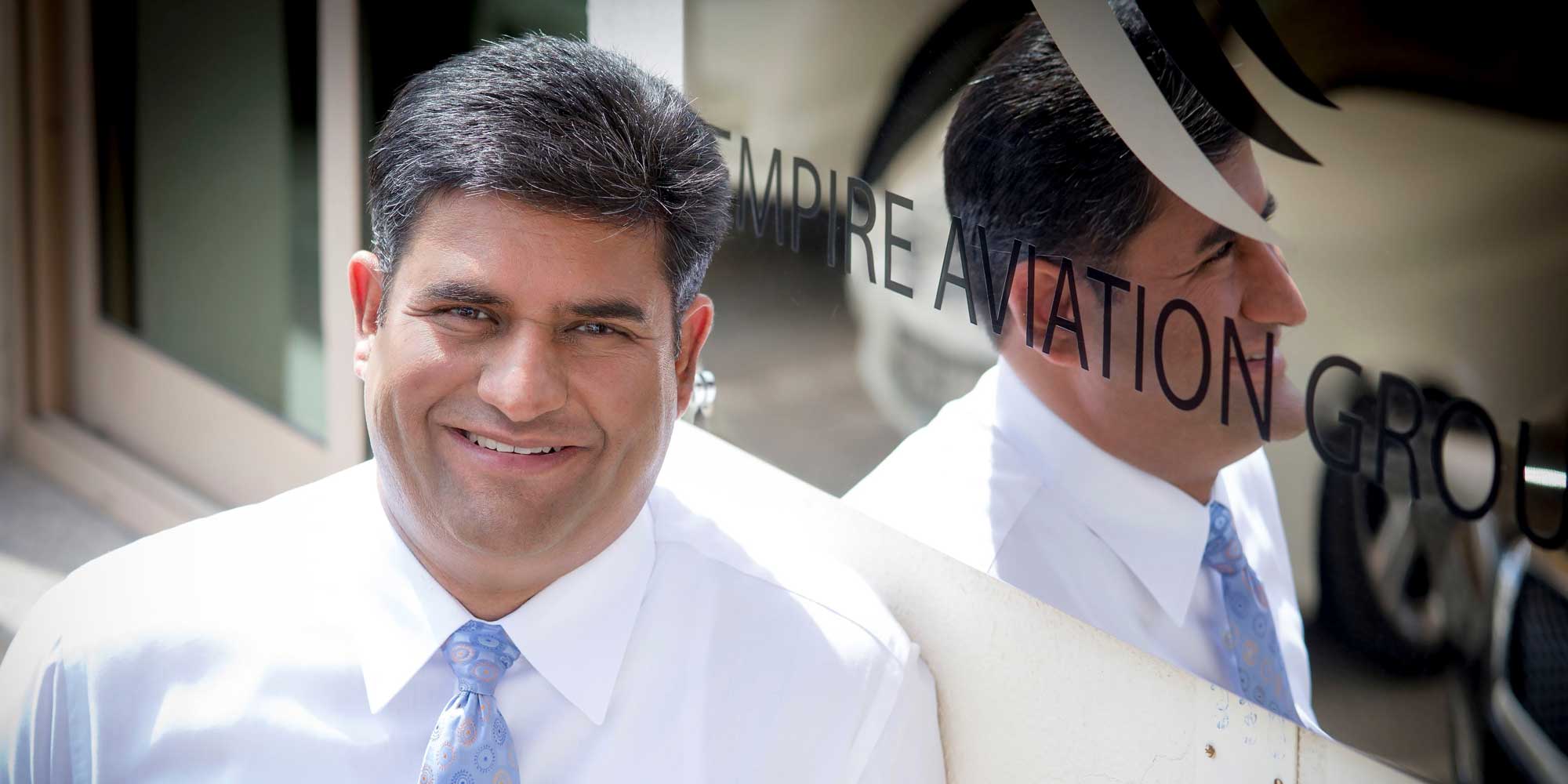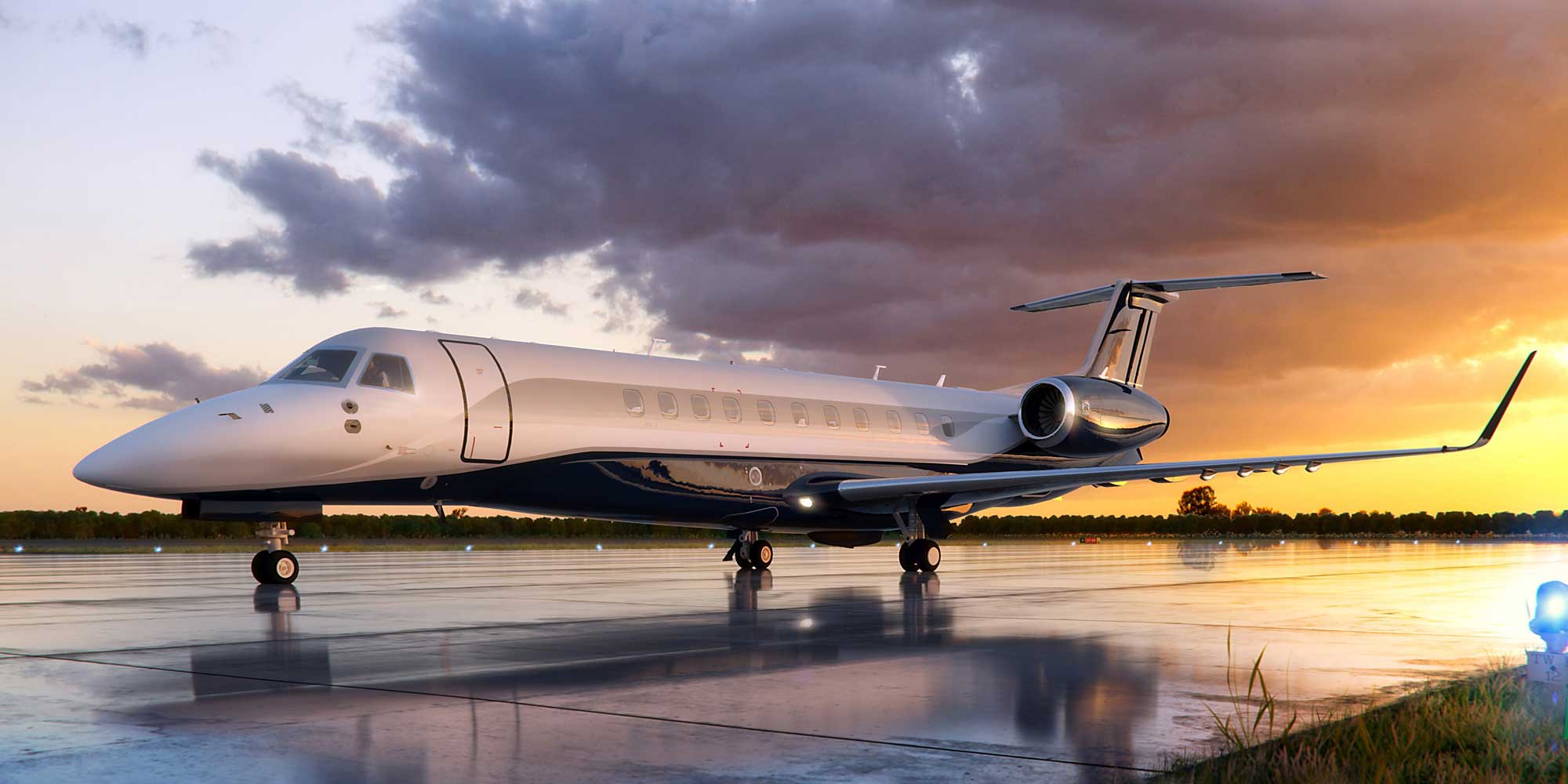Click Here to View This Page on Production Frontend
Click Here to Export Node Content
Click Here to View Printer-Friendly Version (Raw Backend)
Note: front-end display has links to styled print versions.
Content Node ID: 404254
Aside from scheduled cargo, business jet activity has been the only sector in Middle East aviation to prosper during the pandemic, as the dearth of recent airline activity has forced more people to look into air charter or even business aircraft ownership. But the practical realities of day-to-day restrictions have made aircraft operators’ lives difficult.
Factors complicating missions have included border closures, differing immigration rules that often change daily, lockdowns that limit access to suppliers and amenities, health screenings and long quarantine periods restricting crew entry and crew rest, reduced airport opening hours, and manpower shortages.

“We’re extremely positive about the rest of 2021,” said Mohammed Husary, UAS co-founder and executive president. “Recovery is happening, albeit slowly, but we must all consider that the past 12 months have been the most challenging times aviation has ever experienced.
“The UAE is open without any limitations or restrictions, making it exceptional among the majority of global states," he added. "With Expo 2020 Dubai kicking off in October and running for six months, we’re expecting a big increase in air charters to the UAE.”

Paras Dhamecha, managing director of Dubai-based Empire Aviation Group (EAG), agreed that last year was difficult. He said the second quarter last year, in particular, was extremely testing, with airports and nations completely shutting down.
“There were two big challenges,” Dhamecha said. “One was having airplanes on the ground, but secondly, as an asset-management business, making sure that airplanes were kept up the entire time, with [difficulties] of moving people around and completing maintenance.”
Charter business picked up in July, with repatriation flights from within the region to Europe—a surprise, as summer in the region is normally relatively slow. Demand for EAG charter has continued and, with the exception of March, every month has been strong since July of last year.
“The drop in demand in March 2021 perhaps reflected a new wave of Covid-19, with the UK and other European countries closing down,” Dhamecha said. “Apart from March, we’ve seen good uptake in our charter business since the beginning of the year.”
He cites research by GlobeAir AG, which calculates the number of passenger touchpoints when flying on a private jet at just 20 versus 700 by airline. This is because private aircraft passengers move through a smaller, less-trafficked terminal and fly with a handful of people who are known to them.
EAG has also seen renewed interest from customers, as well as new clientele, on the aircraft acquisition side. Several deals are in progress. “If you look at the market, the inventory of good-quality aircraft seems to be drying up fairly quickly,” he said. “This shows that many people see business jets as a ‘safe-haven,’ a safe means of flying.”
Brokers Stay Busy, Too
Just as with charter, aircraft brokers have been busy in the region. “The brokerage world has worked extremely well recently,” said Hamish Harding, chairman of Action Aviation in Dubai. “The business jet market is effectively booming at the moment. We couldn’t really have a more active market.
“Overall, in 2020, it went extremely well," Harding added. "The beginning of the year was going well for us anyway. In January 2020, we closed a brand new G650ER for around $60 million in a preowned sale, one of the highest-value G650 preowned deals last year. We had a couple of other deals and then suddenly Covid hit. Obviously, it went quiet for a few months from March 2020 with the sudden worldwide shock of Covid. Nobody quite knew what was going on and everybody shelved decisions.”
The firm saw one or two deals fall through and deposits were also lost, as people could not complete. Business picked up again in the second half, particularly the fourth quarter. “There was a massive sales effort around the world and people trying to buy aircraft for U.S. depreciation,” he said. “We sold a couple of large jets around December 30 last year. ‘Just make sure it closes before the end of the year and let me do one business flight.’”
Action Aviation aims to sell 20 to 25 aircraft a year. Though it had a very active 2020, this year seems to be even busier. “I had actually thought [sales] might fall off a cliff,” Harding said. “I wasn’t quite sure what the change of U.S. president might mean. I thought maybe there’ll be a clampdown on businesses, and 100 percent depreciation of preowned aircraft might go.
“It seems the momentum has built, if anything, and now we’re hitting a problem where there’s a real shortage of inventory. [W]e have sold most of the aircraft we were representing: for example, we have sold four G450s in the last few months. We are desperately looking right now for fresh stock, particularly G450, G550 and G650, Global 6000, Legacy 600/650, and Challengers. These sorts of aircraft are in constant demand. We cannot get enough of them. We have multiple buyers right now and not enough good stock.”
New-market entrants are moving in. “Right now, we’ve got so many first-time buyers who finally decided they want to have an aircraft," Harding said. "They could have had an aircraft anytime in the past, but they’ve chosen now because Covid just made traveling so unpleasant any other way.”

Jordan’s Arab Wings said that the past 12 months had been tough. A six-month, countrywide airport closure last year—from mid-March until mid-September—meant it operated only three or four flights, impacting financials significantly. Everything was grounded, said accountable manager Sameer Hdairis.
”We were ready to operate and had some requests, but in some cases we had to outsource flights through special exemptions to bring humanitarian officials in from Europe or elsewhere,” he said.
During these six months there was no or little income, except for management fees. It reduced salaries, as overheads, rent, fee payments, and certification approvals remained in place. “I wouldn’t say it was back to normal [in September] but business gradually picked up,” Hdairis said. “We had to adopt Covid-19 protocols on aircraft sterilizations, with crew…wearing the necessary clothing and masks. The offices also occasionally had to be disinfected.”
Arab Wings manages 11 aircraft, of which nine are on charter. “We have seen a slight increase in the first quarter of 2021, compared with the fourth quarter of 2020," Hdairis said. "There is a gradual increase in demand for charter flights.”
RightJet CEO Mark Hardman said the return of flights from Doha would boost the ability to use operators from across the region, including Qatar Executive, enhancing customer choice. The market has also seen significant increases in FBO activity at Dubai International and Al Maktoum International airports. The firm has advised on infrastructure development projects in the UAE and Europe.
Simon Davies, v-p sales for the UK, Middle East, and India at Global Jet Capital, said that while the pandemic affected the business aircraft market in the Middle East significantly in 2020, his company remained active in the market.
“We saw fewer opportunities during the middle of the year while noticing an increase in charter sales during the same period,” he said. “However, we observed an increase in activity in the last quarter of 2020, which has continued into 2021. We cannot predict what will happen in 2021, but we expect to see continued growth in activity levels.”
The key driver for the international markets outside the U.S. in 2021 will be the reopening of national borders from travel restrictions. Another critical market growth factor will be the availability of aircraft.
“We expect to see a more vibrant market in 2021 than in 2020,” said Davies. “The larger-sized aircraft in the traditional aircraft models have seen a dramatic reduction in available preowned aircraft for sale as a percentage of their installed base. Simultaneously, OEM backlogs have remained relatively constant for this aircraft market segment, which means fewer total potential transactions can be completed.”